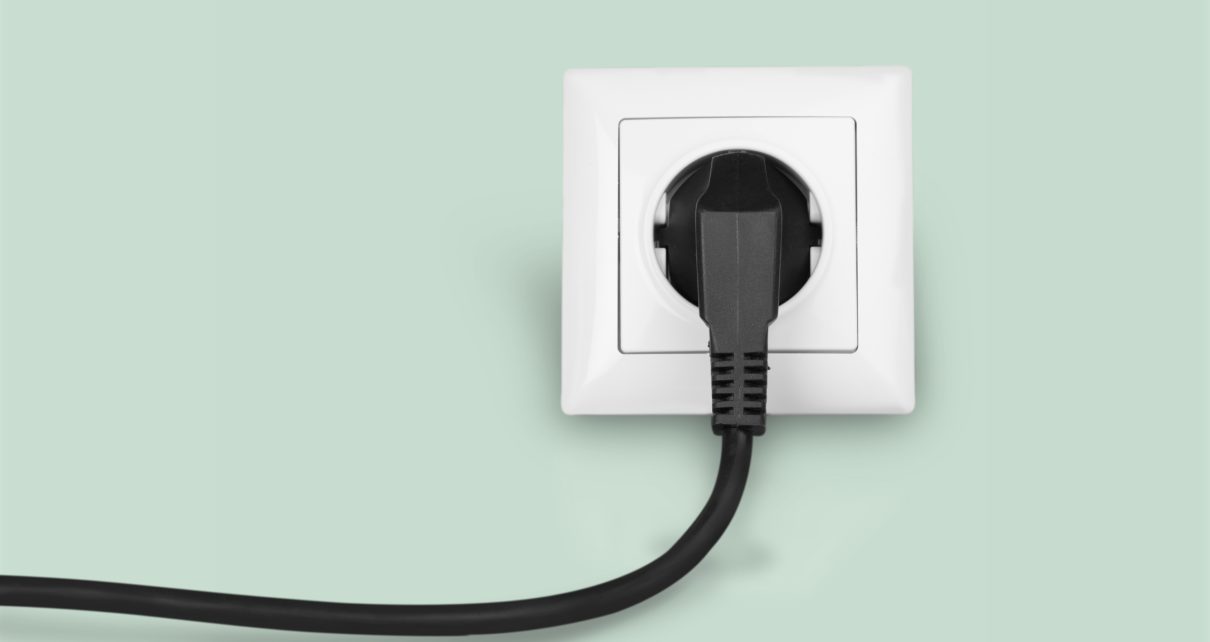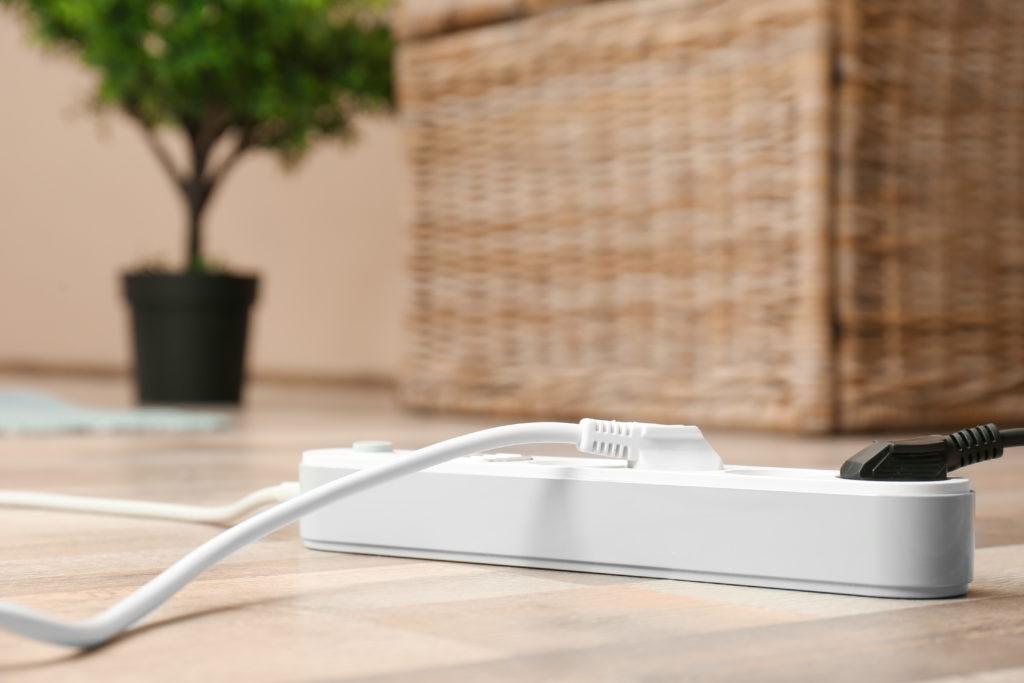
The summer heat has everybody reaching for their AC’s, but what happens when you’ve installed a new window air conditioner, and the built-in cord doesn’t quite reach? It’s extension cord time! But here’s the catch. Extension cords become fire hazards if used without proper care. If you’re trying to keep cool, the last thing you want to worry about is a house fire. If you need to use an extension cord for your AC, stick around to find out everything you need to know on how to play it safe and avoid a disaster.

1. Why are extension cords a fire hazard?
Extension cords are often covered with a thick protective coating, but that same coating traps in heat. Overheating is usually caused by connecting appliances that consume more watts than the cord can handle. You might find melting plastic or burns at the plug, at the socket, or even over the entire cord length. Although extension cords are very helpful as a temporary solution, they should not be thought of as a permanent fixture.
Also, if your extension cord is very old or damaged, get rid of it. It’s cheaper to replace that potential fire hazard than it is to repair actual fire damage.
Here are some quick tips you can do to prevent potential hazards:
- Make sure extension cords are visible and not running across highly trafficked areas. (stepping or tripping on them increases damage to their structure)
- Never use indoor extension cords outdoors. (the protective coating is more likely to break and the exposed wires can make contact with water more easily)
- Avoid running extension cords under rugs or furniture. (this traps heat even more)
- Look for visible signs of excessive wear or damage to the plug or sockets.
- Do not trim the plug blades.
Unplug extension cords when they’re not in use.
2. How much power can an extension cord handle?
The cords on the market vary in rating, depending on the amperage and the wattage —both of which are determined by the gauge of the wire. You’ll want to select the right one to handle the wattage and amperage of your devices accordingly. A cord’s gauge indicates its size. The smaller the number, the larger the wire. For use with larger appliances, thick, round, low-gauge extension cords are best. You can use thin or flat for smaller appliances and electronics.
The carrying capacity of the cord gets lower as it gets longer. So you don’t want to use a lightweight extension cord for large appliances. They produce a higher electrical load that can cause overheating. The length of the extension cord can also be an issue. In longer extension cords, the electrical current resistance is higher, and the potential for overheating is more significant.
3. What should not be plugged into an extension cord?
It seems that everywhere you turn, there are never enough power outlets and devices you can plug them in. But while most of them can be plugged directly into an extension cord, some should not. Refrigerators, freezers, microwaves, and even coffee makers all require a lot of power which can easily overload a power cord. It’s best if these stay plugged directly into a wall outlet, solely powering the appliance. You wouldn’t believe it, but it takes a significant amount of electricity to power your hair dryers and other hair tools. Like the other big appliances, it’s best to plug them directly into the wall and with a GFCI breaker to avoid danger if those tools accidentally get exposed to water.
4. What extension cord do I need for an AC?
When using an extension cord for your AC, it’s important to note that you can’t use just anyone. As discussed earlier, the final choice will depend on the proper wire size and the right voltage. The one thing that’ll play a huge role is the power efficiency of your unit. Generally, a medium window air conditioner will use less than twenty amperes. A typical window AC will be as few as nine hundred watts or as high as fifteen hundred watts.
Extension cords for refrigerators and other appliances generally do not fit for ACs. It’s best if you select an extension cord with at least twice the amps of your AC. This is because ACs initially draw a huge power when starting up, and a heavy-duty extension cord can carry the high currents. A window AC typically uses a 12-gauge wire that can hold as much as twenty amperes of current. So your cord should be shorter with lower gauges (12 or 14 gauge) and higher amp ratings.
Nowadays, heavy-duty extension cords on the market are specifically designed for the best surge protection, like the HDX 6 ft. 15 Amp Grey Air Conditioner/Appliance Extension Cord. It has a six ft. grounded wire, 15 Amp 125-Volt, 1,875-Watt, and a right-angle plug that is molded onto a vinyl cord for extra strength while helping reduce space close to wall applications.

Final Thoughts
For safety reasons, you should only ever use extension cords as a temporary fix. But if you want to use one in the first place, make sure that it is industrial-grade and its cable is thick enough to not heat too much or experience no heating at all once you connect your AC to it. Taking the time to learn the tips we’ve given you can only help you use your AC with greater peace of mind.
